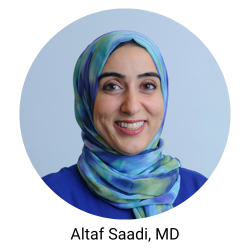NewsAug | 1 | 2023
Research Spotlight: Crowd-Sourced Fundraising to Help Cover Exorbitant Costs Associated with Neurological Diseases

Altaf Saadi, MD, MSc, principal investigator of the Neurodisparities & Health Justice Lab in the Department of Neurology at Mass General and an assistant professor of Neurology at Harvard Medical School, is corresponding author of a new research letter in JAMA Neurology, Evaluation of Crowd-Sourced Fundraising to Cover Health Care Costs for Neurological Conditions in the US. Christopher Galvin, MD, MS, a neurology resident at Mass General Brigham, is the first author.
What was the question you set out to answer with this study?
How have patients with neurological diseases used the GoFundMe platform?
What Methods or Approach Did You Use?
We used a custom web scraping code to capture relevant crowdfunding campaigns on the GoFundMe platform from 2011 to 2201.
What Did You Find?
Of the 11,274 campaigns screened on the GoFundMe platform, 5,460 (48.4%) met the inclusion criteria of individuals fundraising to cover health care costs for a neurological disease in the United States. A total of $203,027,351 was requested, with $88,816,429 raised. Both the number of fundraisers and the amount raised increased over the study period.
- The median fundraising goal was $20,000.
- Most campaigns were for adults (78.8%) with insurance (84.9%)
- Only 18.6% of campaigns reached their goal
- The two most common conditions associated with campaigns were:
- Amyotrophic lateral sclerosis (19.7%)
- Central nervous system tumors (16.5%)
- The most common fundraising purposes were
- Housing related costs (43.0%), such as family lodging during patient hospitalization or home remodeling to accommodate disabilities
- Medical bills or debt (42%)
- Rehabilitation services (40.5%)
- Lost income for patients and caregivers (32.2%)
Since the sample predominantly involved insured adults, the results highlight how patients faced financial burdens due to inadequate insurance, rather than a lack of insurance alone.
The findings also suggest that underinsured patients used funds to pay for both initial costs and the ensuing disability associated with neurological illnesses. The financial burden of neurological disease affected patients and family members alike, with family members leaving their jobs for caregiving.
A previous study of crowdfunding for cancer care found that funds primarily defrayed expenses for immediate needs, such as transportation. We found a different pattern of need contending with lifetime costs of chronic disability, such as rehabilitation and housing-related expenses.
What Are Your Conclusions?
This study underscores the failure of existing systems to address the financial stress of neurological illness, forcing patients and their families to rely on crowd funding. Policy level solutions must involve expanding insurance coverage, either by adapting universal coverage or modifying payment systems.
Paper Cited:
About the Massachusetts General Hospital
Massachusetts General Hospital, founded in 1811, is the original and largest teaching hospital of Harvard Medical School. The Mass General Research Institute conducts the largest hospital-based research program in the nation, with annual research operations of more than $1 billion and comprises more than 9,500 researchers working across more than 30 institutes, centers and departments. In July 2022, Mass General was named #8 in the U.S. News & World Report list of "America’s Best Hospitals." MGH is a founding member of the Mass General Brigham healthcare system.
-
![]()
- Associate Professor of Neurology
- Associate Director, Mass General Asylum Clinic
- Principal Investigator, Neurodisparities and Health Justice Lab
Type
Centers and Departments
Check out the Mass General Research Institute blog
Bench Press highlights the groundbreaking research and boundary-pushing scientists working to improve human health and fight disease.
Support Research at Mass General
Your gift helps fund groundbreaking research aimed at understanding, treating and preventing human disease.

